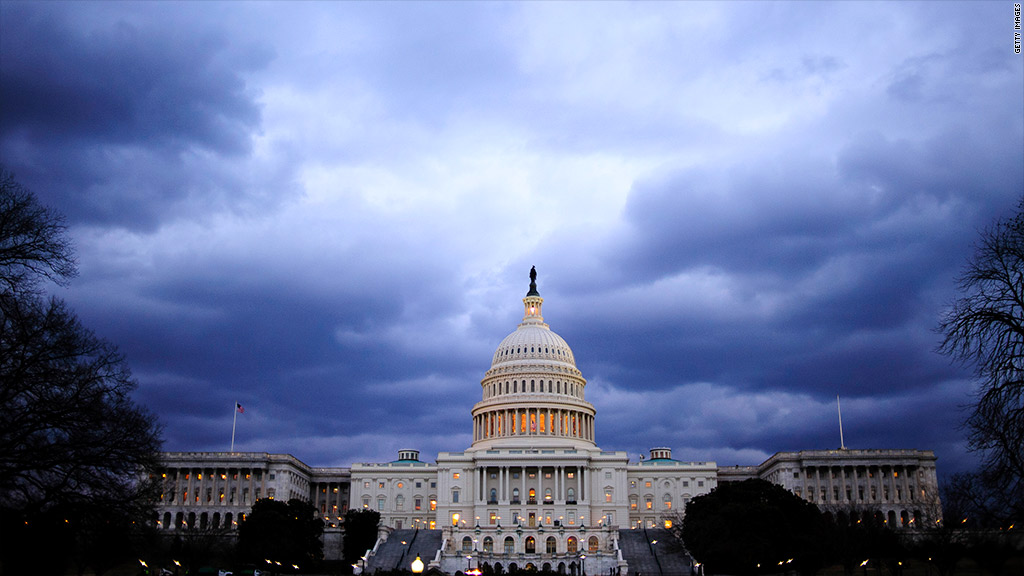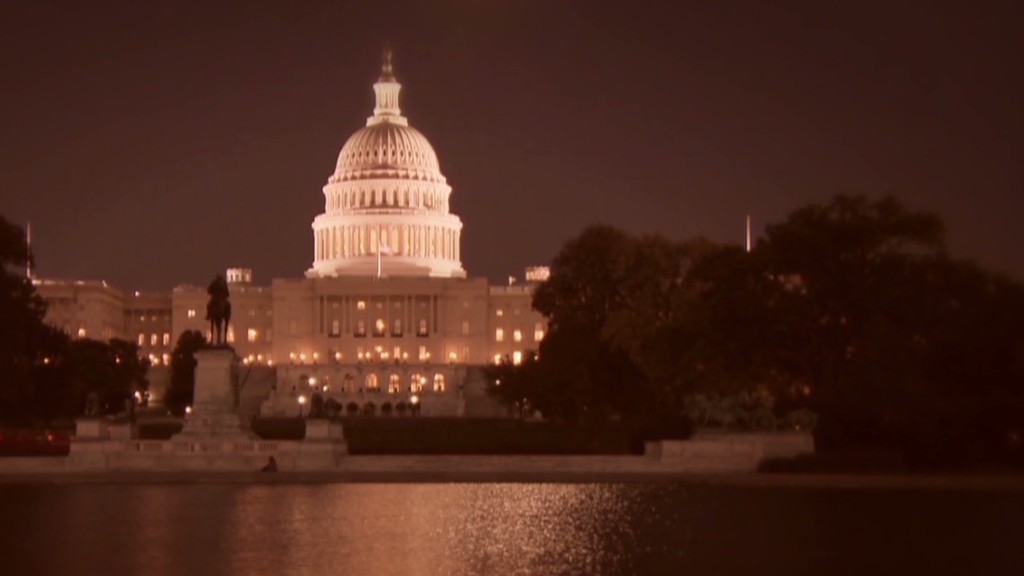
Congress is sowing the seeds of a debt ceiling crisis: If lawmakers don't raise the limit on federal borrowing soon, they will put the nation at risk of defaulting on some of its legal obligations.
When exactly? Much has been made of Oct. 17 as the drop-dead date. But that's not quite right.
And here's why.
The country reached the debt ceiling in May. Since then the Treasury Department has been using special accounting measures to keep borrowing just under the limit.
But Treasury Secretary Jack Lew has said those will run out no later than Oct. 17.
That means the "extraordinary measures" could dry up on Oct. 12 or Oct. 15, or some other date. Just no later than Oct. 17.
When they do, Treasury won't be able to borrow and will have only two sources of money to pay bills: The estimated $30 billion cash that Lew expects to have on hand, plus whatever daily revenue that comes in.
The big question: When will that money fall below what Treasury needs to pay on any given day?
The Congressional Budget Office estimates between Oct. 22 and Oct. 31.
Because money owed and revenue coming in varies from day to day, it's hard to pinpoint the precise day when the country could default on some legal obligations -- which include interest on the debt, Social Security payments, and payments to federal contractors.
Related: Debt ceiling: 8 things you need to know but wish you didn't
What economists and budget experts are very clear about, however, is that the closer we get to mid-October the more markets are likely to buck. And refusing to raise the debt ceiling for too long could cripple the economy and investments.
Here's why.
Cash crunch could leave millions high 'n dry: If Treasury doesn't have enough cash on hand to pay what's owed, it will have to make decisions that are legally and ethically questionable, to say nothing of practically difficult.
Some Republicans say that Treasury should prioritize who gets paid first.
Treasury says that would not only be near impossible because of how its payment systems work, it would be wrong. "Any plan to prioritize some payments over others is simply default by another name," Lew wrote in a letter to lawmakers.
Most experts assume that Treasury would do all it could to pay interest owed to bondholders first since failure to do so could unhinge world markets.
But beyond that, who deserves to be next on the list? Seniors, disabled veterans, federal contractors, active-duty military personnel? The federal government has incurred legal obligations to all of them. They and the U.S. economy depend on their being paid on schedule.
Treasury would have two main options, both awful: It could pay some bills in full and delay others; or it could delay all payments due on a given day until it has enough money on hand to pay them all.
Senior Treasury officials indicated in an inspector general's report that the second option would be the most likely and least harmful of the two. But it's hardly painless.
Backlog of payments would grow: Depending on how long the debt ceiling standoff lasts, delays could quickly grow from a day or two to several weeks.
That would starve the economy and create doubt in the minds of investors and ordinary Americans that the United States is good for the money.
"If the confidence in the reliability of payments were cast into doubt, the consequences for the budget, the U.S. economy, the U.S. and global financial systems could be large and lasting and very damaging," Douglas Elmendorf, the current CBO director, told Congress recently.

U.S. standing in the world would be hurt. It will be very hard to justify to anyone why the world's largest economy and richest country is willfully choosing not to pay what it owes.
Markets and the economy would tumble: Economist Mark Zandi worries that the stock market could start falling by hundreds of points a day as the calendar moves closer to Oct. 17 if Congress shows no signs it will raise the debt ceiling. And it really won't help confidence if the government shutdown is still going on.
Should it get to the point that Treasury can't pay all bills in full and on time? "We're going back into recession. It's an economic Pandora's box," Zandi told CNN.


